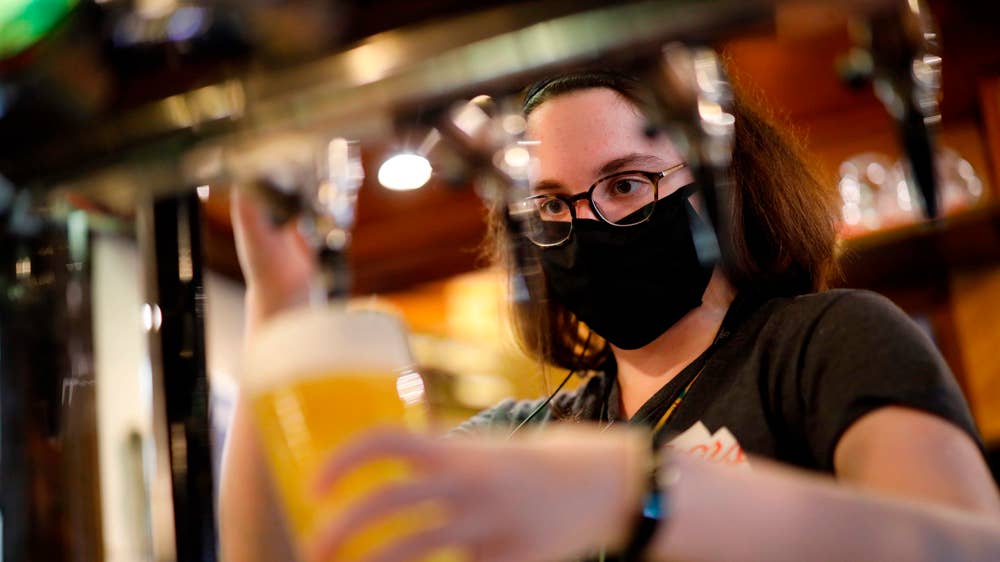Domestic Abuse Bill: Glaring holes mean women will still have no escape route from violence, campaigners say
The Independent employs reporters around the world to bring you truly independent journalism. To support us, please consider a contribution.
“Glaring holes” in the landmark Domestic Abuse Bill mean many women will still have no escape route from violence or being killed, campaigners are warning, ahead of crucial votes next week.
Ministers are being urged to make urgent changes to the legislation – championed by Theresa May – when it returns to the Commons next week, to give proper protection from partners or stalkers.
The bill has been beefed up during a protracted three-year journey, creating a legal duty on local councils to provide refuge spaces and halting cross-examination by abusers in courts.
But women turning to community health services for help, those stalked at work and – most alarmingly – migrant women will continue to fall through the cracks, it is feared.
Jess Phillips, a Labour MP and key campaigner, revealed police officers are paying for abuse victims to stay in hotels “out of their own pockets” because victims are denied help under the harsh no recourse to public funds (NRPF) rule – a bar that will remain in place.
“These are often the hardest cases, involving the highest risk victims – they end up being the names [of murdered women] I read out in parliament every year,” Ms Phillips warned, speaking to The Independent.
“The pledge to reduce domestic homicide will not be served until these gaps are filled.”
The charity Women’s Aid also called for the NRPF rule to be axed and for a duty on health professionals to provide vital support, saying: “Only one in five survivors calls the police.”
In March, in what has become a grim annual event, Ms Phillips named more than 100 women murdered by men in the past year – taking more than four minutes to do so.

What she calls an “epidemic of male violence against women” prompted the Domestic Abuse Bill, to increase prosecutions and eradicate a postcode lottery in the way victims are dealt with by police forces.
The last prime minister called it a personal priority, but it was delayed three times, by the general elections in 2017 and 2019 and by Boris Johnson’s illegal shutdown of parliament last summer.
The latest news on Brexit, politics and beyond direct to your inbox
It will finally clear the Commons on Monday, creating a new domestic abuse protection order to make it easier to take out restraining orders in abuse cases stopping short of violence, or the threat of it.
Campaigners are also delighted by the legal duty on councils to provide refuge services, that the homeless will be a priority, and by the changes in family courts, including to ensure victims and alleged attackers do not share spaces.
But there are huge concerns over funding and whether an estimated £173m required for a proper national network of refuges will be made available.
And Ms Phillips said she was still urging ministers to go much further in three areas:
* To require health and other community services – which are approached by 70 per cent of abuse victims – to provide refuges
* Better protection at work – arguing a majority of women with stalkers report they “use workplaces to control them”, and describing a promised review as “a way of kicking this into the long grass”.
* An end to the NRPF policy – to ensure “immigration status does not decide if a woman gets support”.
The Birmingham Yardley MP explained: “If you are here on a student visa, or a work visa and you have no recourse to public funds, you will not be entitled to go into a refuge.
“When you’re a victim and you’re standing in front of a police officer, or a housing officer, or a doctor, the level of support they will be able to find for you that night – for you to be safe from harm – will depend on what stamp is in your passport.
“The police would have to say, ‘I’m afraid you are going back to your house tonight.’ Loads of officers have written to me saying this is a massive problem.”
And she pleaded with ministers to concede further ground, saying: “I will never give in – I will blame them for every migrant woman murdered.
“The bill now is in much better shape than when it started, but still has some glaring holes in it.”
Nicki Norman, acting chief executive of Women’s Aid, echoed the criticism that the bill badly needed more work.
“For many survivors, health care settings are one of the few places that they feel safe to disclose domestic and sexual abuse and seek confidential support without the perpetrator present,” she said.
And she added: “Migrant women with no recourse to public funds face insurmountable barriers to accessing support services, including a refuge space, which is paid for by housing benefit.”
But the Home Office said it was “working hard to support migrant victims, including investing £1.5m to help them access safe accommodation”.
“The Domestic Abuse Bill is a game-changing piece of legislation that will transform how we deal with this horrific crime and will ensure that victims of domestic abuse and their families are supported and protected while perpetrators face justice,” a spokesperson said.
“For those in the workplace, protection orders can support anyone struggling, and the government has launched a review of support in the workplace for victims of domestic abuse.”
Ellie Butt, head of policy at the charity Refuge, welcomed “the potential to transform the response to domestic abuse”, but called for exemptions from repaying universal credit advances.
“Making sure that the benefits system works for women fleeing domestic abuse is one of the most important changes the government can make to protect survivors,” she argued.
tinyurlis.gdclck.ruulvis.netshrtco.de
